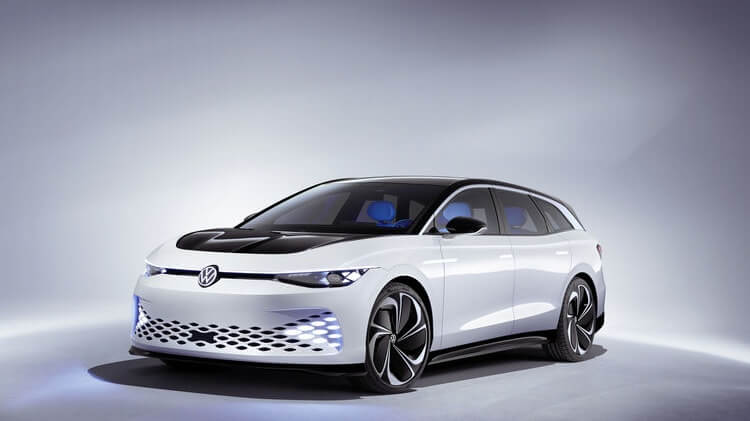Volkswagen just debuted its Space Vizzion Concept at the Los Angeles Auto Show. The electric car boasts a vegan leather interior.
The Space Vizzion Concept can launch from 0-60 in just 5 seconds. It can reach up to 109mph. The vehicle’s 82-kilowatt-hour pack could keep it running for 590 kilometers, or 366 miles. The car has a 15.6-inch touchscreen which “appears to hover in mid-air,” according to VW. Drivers can control most of the car’s functions with their voice.
As well as the vegan interior, VW boosts the car’s sustainability by ditching chrome in favor of chrome-like paint. Chrome tanning was invented in 1858. It quickly became popular as it is cost-effective and more efficient than other methods. However, chrome has dire impacts on the planet. Chrome — as well as other substances, like lead — can enter local water supplies. Forbes explains: “This can have devastating consequences for soil erosion in the surrounding area and for people living around these water ways with symptoms ranging from irritation to the mouth, airways and eyes, skin reactions and digestive problems to kidney and liver damage, cancer and reproductive problems.”
VW’s Space Vizzion is currently just a concept. However, the German automaker says it will launch the vehicle to market in the next few years. VW will create multiple versions of the Space Vizzion, including a wagon-like shape for European markets and an SUV-inspired model for the U.S. The car manufacturer aims to have nearly 50 all-electric models available worldwide by 2025.

Electric Cars Going Vegan
For years, leather car interiors have been considered luxurious. However, as more companies and consumers prioritize the planet, vegan leather is becoming more sought after.
Leather comes with a high carbon footprint; raising livestock accounts for more greenhouse gas emissions than the world’s transportation systems put together. Further, tanneries treat leather with 250 different substances, including cyanide, arsenic, chromium, and formaldehyde. These substances can pollute waterways and raise the risk of disease for local communities and workers. Research has found a 50 percent increase in pancreatic cancer in tannery industries.
In May, VW unveiled an electric car with AppleSkin seating. The plant-based leather is made from apple juice waste. Porsche’s new Taycan electric car can be ordered with a vegan leather interior, and Bentley introduced an electric car concept featuring vegan leather made from grape skins.
Volkswagen’s Space Vizzion will be available in late 2021.


